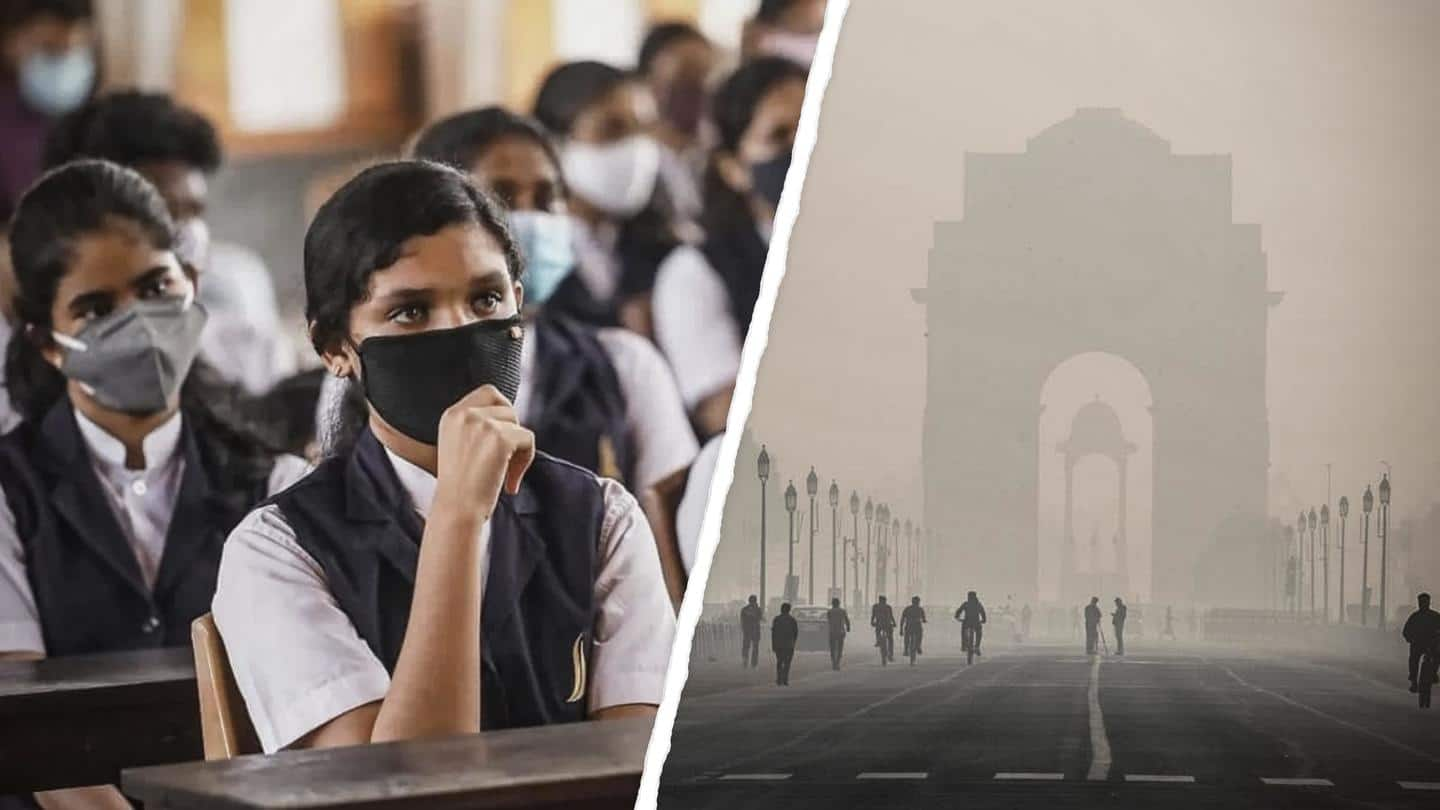
Delhi schools shut for a week over severe air pollution
What's the story
Delhi Chief Minister Arvind Kejriwal on Saturday said schools in the city will shift completely to offline classes for a week starting Monday. All construction activity will also be suspended and government officials will work from home for the time being, the CM announced. This comes as the national capital combats severe air pollution and toxic smog. Here are more details on this.
Context
Why does it matter?
Delhi has been named the world's most polluted capital city for the past several years, raising concerns for its nearly two crore residents. The city's air quality usually worsens after the festival of Diwali when people burst firecrackers to celebrate. Even a complete ban on crackers has failed to change that scenario. And, with winter approaching, Delhi's air quality is expected to remain poor.
Details
Construction work banned until Wednesday
The ban on construction activities will be in force during November 14-17, Kejriwal said. Further, the city government will issue an advisory to private offices, asking them to allow employees to work from home. "Government offices to operate from home at 100% capacity for a week. Private offices to be issued an advisory to go for WFH option as much as possible," he said.
SC
Supreme Court had called for emergency steps
The announcement came hours after the Supreme Court slammed the governments at the Centre and in Delhi over the harrowing pollution levels. Chief Justice NV Ramana had inquired if a two-day lockdown could be imposed in the city. "You have to look at this issue beyond politics and government. Something must happen so that in two to three days we feel better."
Situation
How bad is the situation?
On Saturday, Delhi's residents woke up to "severe" air quality with the Air Quality Index (AQI) as high as 499. Further, a thick layer of smog lingered over the National Capital Region, lowering visibility to 200 meters at several places in the city. The authorities had earlier advised people to limit outdoor activities and reduce vehicle use by at least 30% to combat pollution.